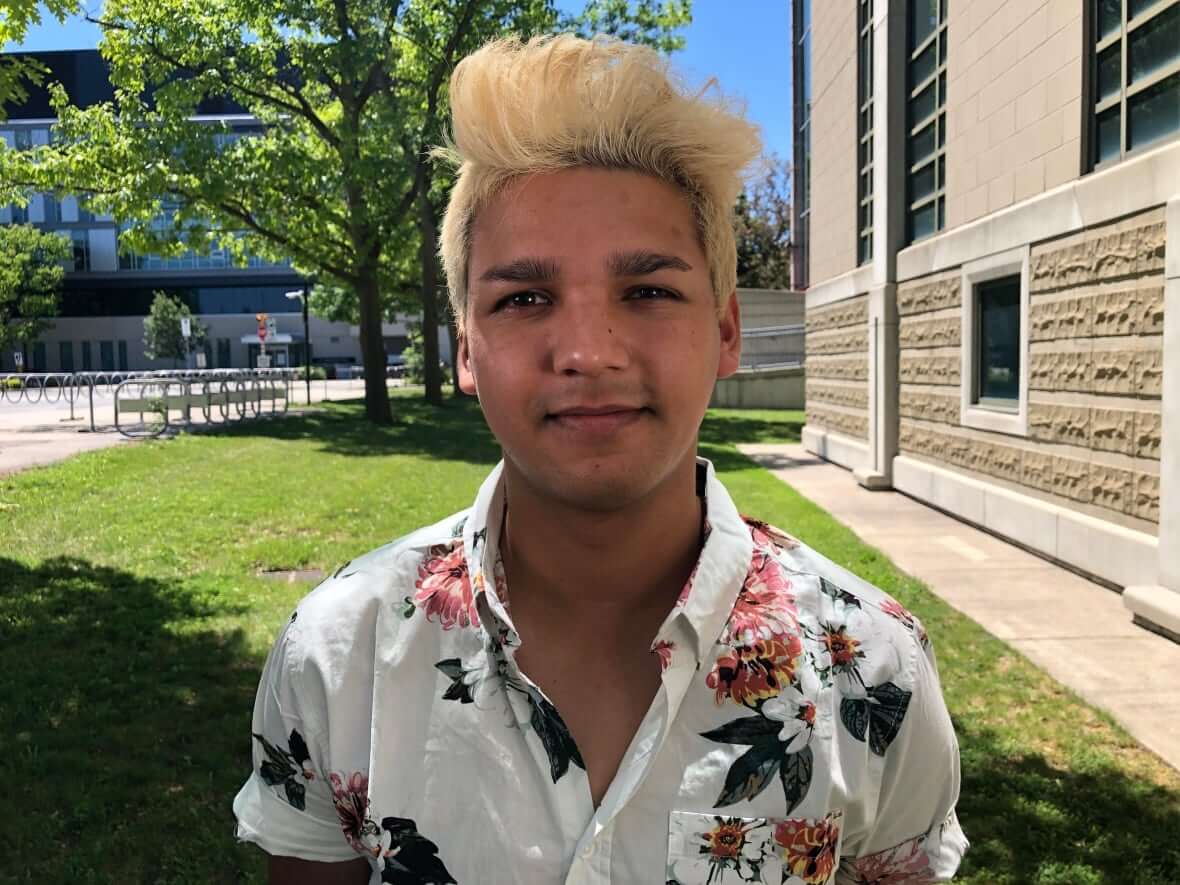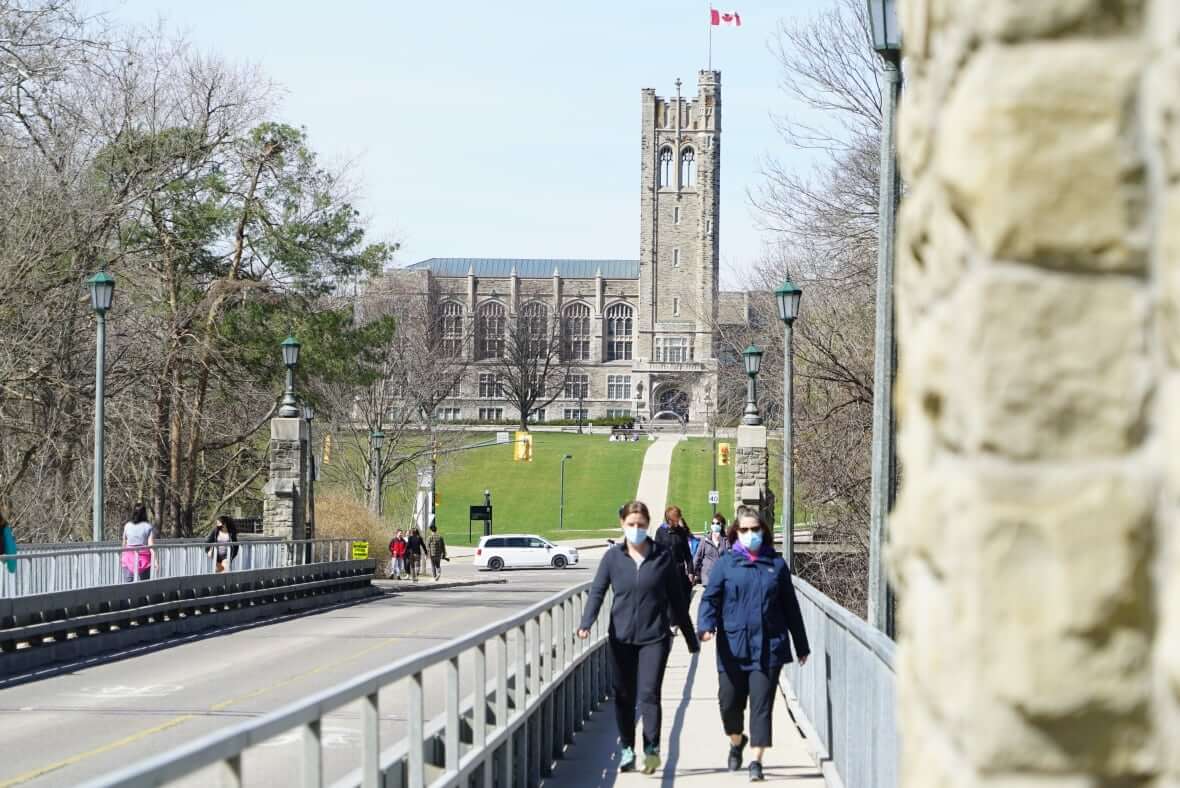Universities and colleges wrestle with mandating COVID-19 vaccines for return to campus

Andrew Mrozowski just graduated this week from McMaster University’s political science program, but the editor-in-chief of the school’s student-run newspaper has already turned his mind to the fall semester.
How Canada rose to the top for 1st doses of COVID-19 vaccine
Presiding over The Silhouette’s staff of full-time undergrads, Mrozowski says the Hamilton, Ont., school’s choice not to require vaccination for students leaves him worried for his reporters’ safety.
“I frankly feel uncomfortable sending them to cover events, to cover different news items that are happening within the Hamilton area, within McMaster if they’re not vaccinated,” he said.
Beyond the safety of the students themselves, he worries about unvaccinated newspaper staff potentially spreading COVID-19 to housemates or family members.
“With the community spread that we’ve seen within the last two waves, this could happen again.”
As pandemic restrictions lift across the country, heated discussions are ramping up over proof of vaccination requirements and whether certain settings — for instance long-term care homes or schools — should implement mandatory COVID-19 vaccination policies.
In the past few months, hundreds of universities and colleges across the U.S. — from Rutgers and Yale to USC, Spellman College and the Berklee College of Music — have made full vaccination compulsory for all those returning to campus.
By comparison, University of Toronto, Western University and Fanshawe College are among just a small handful of Canadian post-secondary institutions that have announced vaccine requirements for the upcoming school year — and only for students living in residence. For the most part, institutions are strongly encouraging vaccination for students, faculty and school staffers, but not requiring it.

According to Mrozowski, McMaster students are yearning to be back on campus and he believes making COVID-19 vaccination mandatory will help facilitate a return to in-person classes and bring some normalcy back.
“In order to have that in-person education, you need to feel safe. You need to feel committed to coming to campus to learn,” he said. “How can you be putting all your focus on learning when you’re worried about if the person next to you is going to give you COVID?”
‘Be assertive’ with policies, says infectious disease expert
Having treated patients in Montreal from the first days of the pandemic through subsequent waves of infection, Dr. Donald Vinh believes a mandatory vaccination policy for colleges and universities “should be considered necessary.”
“It’s reasonable and would outweigh the harmful impacts on the rights of the people on campus,” he said.
With the increase of vaccine supply to Canada this spring and a rising percentage of the teen and adult population getting their shots daily, he thinks Canada is on a good trajectory at the moment, but noted that doesn’t mean we should be complacent and fail to plan for the months ahead.
“If we have any change in the current status quo, then we can actually find ourselves in trouble because these university campuses could be a brewing pot for the transmission and the dissemination not only on campus, but spilling over … into the community,” said Vinh, an infectious disease specialist, medical microbiologist and research clinician scientist at the McGill University Health Centre.
According to Vinh, “it behooves the educational institutions to be a bit assertive in their mandate to protect those on campus” by enacting strong policies and measures.
A high rate of vaccination is important also, he added, because the wider school community likely includes individuals who, even if vaccinated, may have underlying medical conditions that continue to put them at greater risk from COVID-19.

He called the current Canadian focus on mandatory vaccinations only for students in residences “a bit of a facade”.
“It looks like there’s a policy in place to protect the health and well-being of students, but it doesn’t really have an impact on a larger-scale level because most students don’t live in dorms and I’m almost sure that most faculty don’t live in dorms,” Vinh said.
If officials are not willing to make vaccination a requirement for all campus life, he concluded, then they must have an alternative strategy in place — for instance, regular and frequent COVID-19 testing.
Juggling overall campus health, individual choice
Enacting mandatory COVID-19 vaccination requires weighing a host of variables, according to Maxwell Smith, who published a policy brief for the World Health Organization this spring that outlines ethical considerations and caveats for governments and policy-makers wrestling with the issue.
“It’s important that we don’t run roughshod over people’s liberties…. But of course, if we have an infectious disease circulating in a pandemic, that can also have deleterious effects on people’s health and their liberties,” said Smith, a bioethicist, assistant professor of health studies at Western University and member of Ontario’s vaccination task force.
“We kind of have to trade off these different values: in terms of protecting the public’s health or protecting the health of the students on campus, but making sure that we are doing whatever we can to make sure that they’re able to make the sort of autonomous choices that they want to.”
Much also depends on the situation come fall, Smith noted.
For instance, by September, if enough of Canada’s adult population has received their shots and community transmission continues to drop and stay low, “there’s no need to use the force of law or policy to make sure that people are being vaccinated,” he said.
“But knowing that we really want to get back in-person … this is a measure that can help us get there. And once we get there, if we realize this is no longer necessary — or perhaps in semester two or next year this wouldn’t be necessary — then you can relax those sorts of requirements.”
Smith says it’s key for post-secondary officials to be transparent and offer concrete justification for any decision-making. If administrators can cite evidence of where outbreaks have occurred on campus or locations of highest risk (like residences and gyms, for instance), then strong measures such as vaccination mandates in those settings may be considered reasonable and make more sense to the community.
Without the evidence and transparency, strict policies could backfire. “That’s when you start to perhaps see more lacking confidence or distrusting those that are making these sorts of decisions — and that could lead to more vaccine hesitancy.”
Perhaps the best plan, Smith says, is simply reducing all barriers and making vaccine doses available to students, school staff and faculty right in the middle of campus.
“Just to make sure that they’re so readily accessible that it’s the easiest thing in the world to go get it.”








Redes Sociais - Comentários